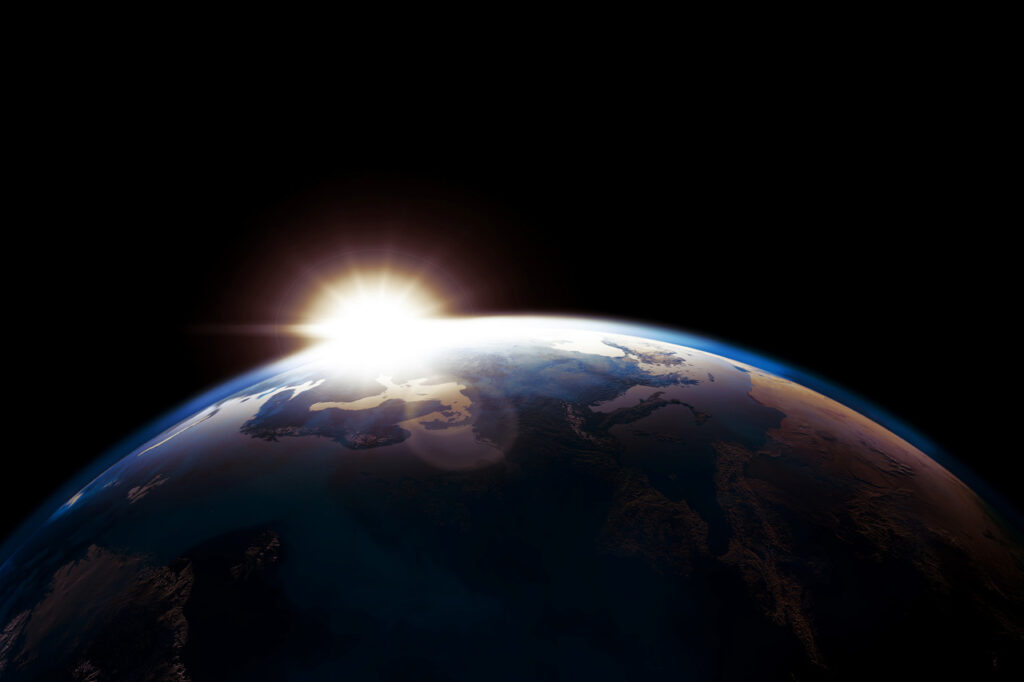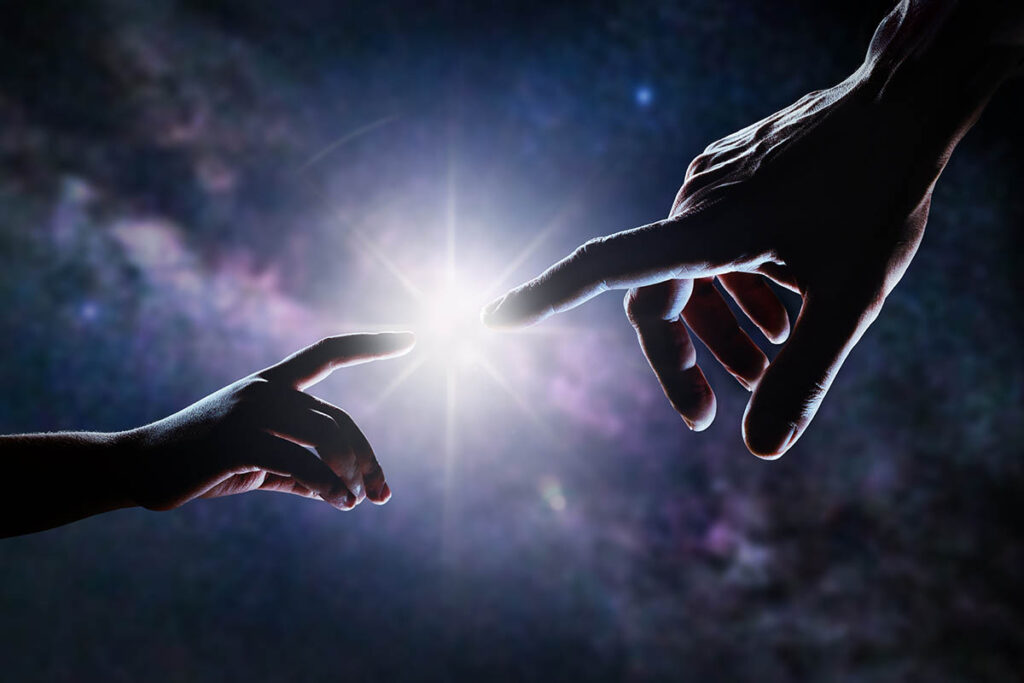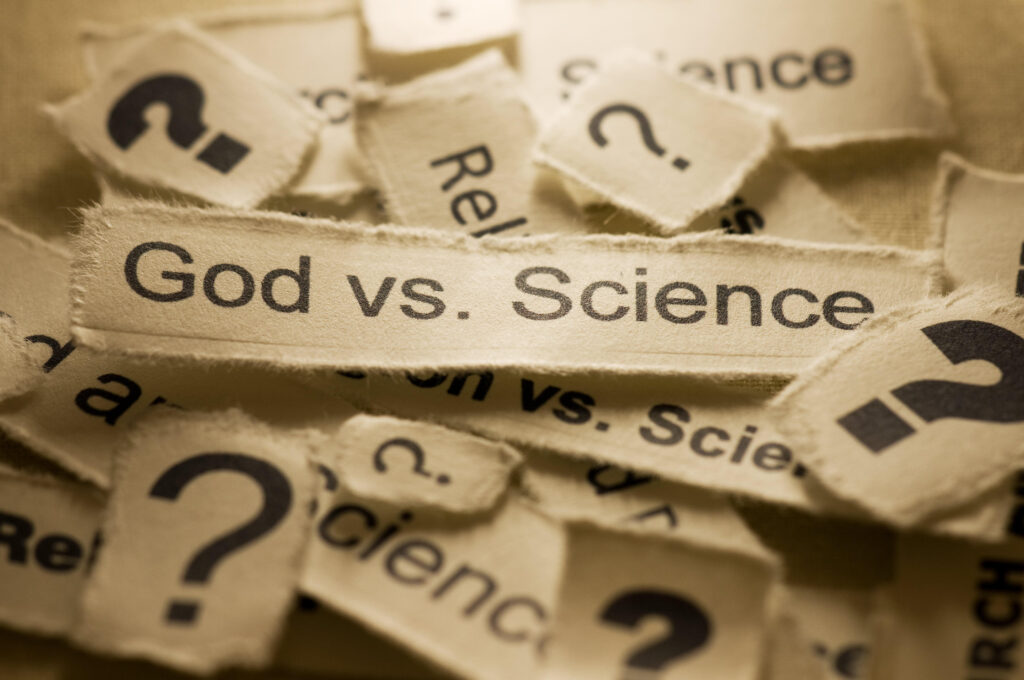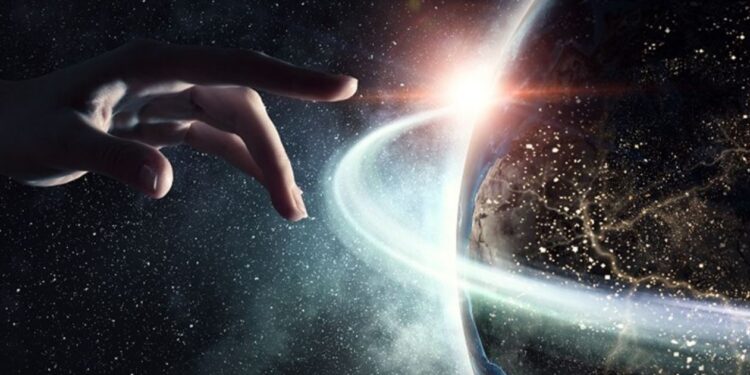Over the course of our society’s progress and change, two inherently different ideologies and understandings of the world have been colliding. One has always opposed the other and indirectly claimed that it could not exist in such away. The other neglected what is possible, explainable, and empirical and focused on the deeper meaning of life and a force/being greater than everything else. This is of course the distinction between science and religion. Sadly, many lives were ruined and lost over the millenniums due to the conflict of ideologies between the supporters of natural sciences and deeply religious individuals. Things are far from being like this today, but science and fate still do not mesh.
However, what does science truly say about the potential existence of an almighty, omniscient being who watches over us and controls our faiths? Is there any proof that God could actually exist, and if so, where is he, what does he look like, and can we even talk about a “he”? These are questions that we cannot answer but only speculate on. Despite this, it is an interesting topic worth diving deeper into so we will do exactly that right here and now. Read on to find out what science has to say about God in the 21st century. In case you are further interested in this fascinating subject, check more here.
General Premise

Most modern scientists believe in a similar understanding of God and religion. Whether they are religious themselves or not, their knowledge of the world prevents them from thinking that there is a need for such a being that would be considered a God. Since science is capable of providing clear and sensible explanations for most things in history, especially the creation of man and other creatures, the need for God as a being who created the world seems pointless. However, some claim that the very existence of science is one of the expressions of a God who is the Creator of everything. Without the insight and abilities we got from him, there would be no science. Many different takes on these ideas exist, all similar to each other but different in certain details. In general, the science community cannot and does not disapprove of religion, it merely sees no point in its need nor its examples in the real world.
Different Ways of Understanding the World

The existence of numerous religions and dozens of deities is enough proof to understand that different parts of the world view our world differently. These civilizations appeared and evolved separately, way before they started mixing and meeting each other. By the time globalization took over, there were already numerous beliefs of how our world was created and who did it. When sciences entered the scene, they were merely the latest in the long line of attempts to explain how our planet can exist, how we as humans appeared and where, and much more.
The difference between what religion says about God and what science can prove through fossils, research, and experiments is the fact that the latter can be explained and shown through examples, while stories are God are usually legends and fiction. Although not on the same level as other literature, religion still talks about events that did not and could not happen, according to both common sense and science. We perceive sciences in a certain way, one which allows us to know the world as it is and learn about the intricate things that make it all possible. Simply believing in religion and a God is not enough for scientists. The thought of it all existing without proof and the possibility to check it is not scientific.
It is Still Possible to Believe in Both

Many religious people still believe in evolution, and many scientists are very religious. It is possible of course and one should not exclude the other. Believing in God can go together with accepting fundamental concepts of science. Religion can still be something deeper, spiritual, something that helps us make sense of our everyday life. It should not prevent us from believing in evolution, the Big Bang, and the existence of millions of other galaxies.
The biggest conflict will always be the creation of life. It is easy to say that a higher being did it all by their lonesome. But where did they come from and who created them? Is there someone above God and how does religion explain that? In terms of science, the creation of the earliest form of life is connected to the conditions on Earth finally being right for the first organisms to appear.
While it is not known what the physical and chemicals of our planet were those 3.5 billion years ago, our ability to find rocks that date that far back surely helps. Nothing in religion can help us think that far behind. Religion was created soon after the appearance of the first civilizations, around 10,000 years ago. Further back, the modern form of humans, Homo sapiens, evolved from Homo erectus some 300,000 years ago. How can religion explain so much of the history of the world if it has only been around for so little?
Conflicting Ideas Will Persevere

Even if or when we manage to explain most of the things we do not know with certainty right now, religion will still be there to question it. Progress will always be questioned by established ideas. It is normal for people to fear what they do not understand and what seems new. The reality of the matter is that God and science do not really support each other, but they do not have to. It is good for the world that both of these movements and ideologies exist, as long as the practitioners and supporters of both do not show any extremism while defending their beliefs. Science cannot really be disapproved because its examples are all around us. Religion can, but the idea behind it is somewhat supernatural anyway so it gets a pass. One thing is certain. If science ever proves that God exists, it will surely be the greatest find in the history of mankind and it will change the world forever.


